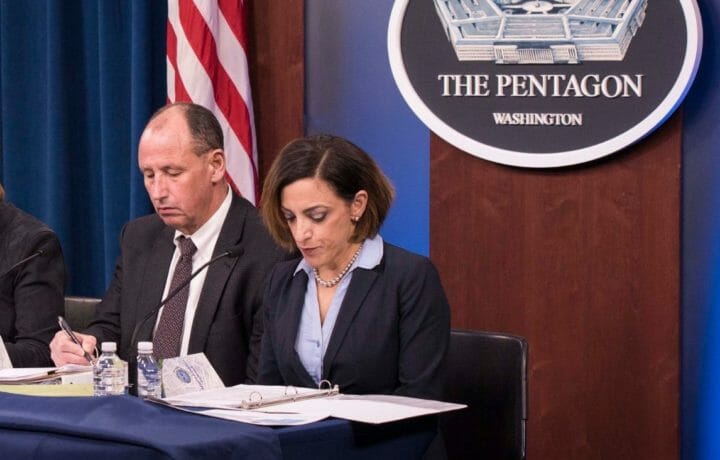You may recall that in May, Katie Arrington, Chief Information Security Officer for Acquisition and Sustainment for the Undersecretary of Defense, had her security clearance suspended. The reason given by the National Security Agency (NSA), the suspending agency, was that “action is being taken as a result of a reported Unauthorized Disclosure of Classified Information and subsequent removal of access”. Ms Arrington was not terminated from her job but was placed in a paid, non-duty status.
Recently, Ms. Arrington filed suit against the DoD and the NSA under the Administrative Procedure Act (“APA”) and the Fifth Amendment for unreasonable delay and a name clearing hearing. In summary, the Plaintiff, according to pleadings, has still not been notified of why specifically she was suspended nor given an opportunity to clear her name.
Security Clearance Litigation
The APA and security clearance litigation are not strangers to each other. While there is long standing precedence that the merits of a security clearance revocation or suspension is not a function of the judicial branch, there have been some decisions on denial of due process based on inadequate explanation of reasons for the suspension or lengthy delays without communication to the individual. Several cases pointed out the paradoxical problem of inability to disclose the reasoning of suspension to the individual because “they no longer had a valid clearance”.
Side note: this is why it could be important that your counsel has a clearance, as stated in the complaint. If this topic really interests you, Heidi Gilchrist, Professor at Brooklyn School of Law, wrote an excellent law review article in 2017 titled SECURITY CLEARANCE CONUNDRUM: THE NEED FOR REFORM AND JUDICIAL REVIEW, 51 U. Rich. L. Rev. 953.
The pleadings acknowledge that Ms. Arrington was placed in a paid, non-duty status pending a final decision. This is consistent with the language in DOD MANUAL 5200.02 which states DoD may not take an unfavorable administrative action against an employee without granting the employee the procedural protections provided by the regulation to include a final decision. The Manual, updated in 2020 to incorporate existing law, has some room for interpretation as to when a person’s rights to due process can be invoked. That is a subject for an entirely different article. It is also probable that there is no position that Ms Arrington could fill in the agency that does not require a clearance.
The related question of whether a time lapse of five months without hearing or evidence provided to plaintiff constitutes a violation of timely due process is another in which courts will usually not get involved in when it comes to matters of the Executive Branch. Every effect shall be made to resolve suspension cases as expeditiously as circumstances permit. The relevant part of the CFR on the subject states:
Suspension cases exceeding 180 days shall be closely monitored and managed by the DoD Component concerned until finally resolved. Suspension cases pending in excess of 12 months will be reported to the DASD(CI&SCM) for review and appropriate action.
How this translates to the discussed case is anyone’s guess but it is clear that five months is not out of the norm applying the above language.
Defamation and a Security Clearance
So where does the litigation in this case go from here? It is interesting to look at possibilities. If clearance is revoked, then the request for judicial review on the merits is more than likely to fail. However, there are some allegations by the plaintiff mentioned in passing of defamatory statements that caused her reputation harm. Political Appointees serve at the will of the President, so she could have been terminated for any or no reason. Does that make the adjudication of the Plaintiff’s security clearance now relevant on the merits as a potential basis for a defamation lawsuit? From a purely legal watch perspective, removing partisan politics, the scenarios are worth paying attention to.




